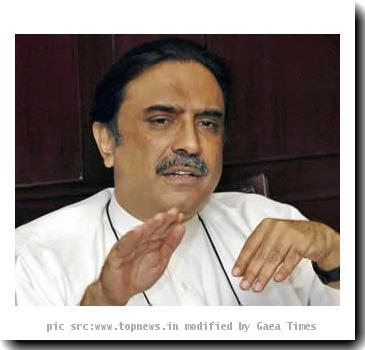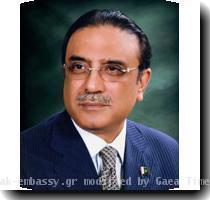Pakistan’s main spy agency still arms, trains Taliban despite US pressure, research says
By Sebastian Abbot, APSunday, June 13, 2010
Report: Pakistani spy agency arms, trains Taliban
ISLAMABAD — Pakistan’s main spy agency continues to arm and train the Taliban and is even represented on the group’s leadership council despite U.S. pressure to sever ties and billions in aid to combat the militants, a research report concluded.
The findings could heighten tension between the neighboring countries and raise further questions about U.S. success in Afghanistan since Pakistani cooperation is seen as key to defeating the Taliban, which seized power in Kabul in the 1990s with Islamabad’s support.
U.S. officials have suggested in the past that current or former members of Pakistan’s powerful Inter-Services Intelligence agency, or ISI, have maintained links to the Taliban despite the government’s decision to denounce the group in 2001 under U.S. pressure.
But the report issued Sunday by the London School of Economics offered one of the strongest cases that assistance to the group is official ISI policy, and even extends to the highest levels of the Pakistani government.
“Pakistan’s apparent involvement in a double-game of this scale could have major geopolitical implications and could even provoke U.S. countermeasures,” said the report, which was based on interviews with Taliban commanders, former Taliban officials, Western diplomats and many others.
“Without a change in Pakistani behavior it will be difficult, if not impossible, for international forces and the Afghan government to make progress against the insurgency,” said the report, written by Matt Waldman, a fellow at Harvard University’s John F. Kennedy School of Government.
Maj. Gen. Athar Abbas, spokesman for the Pakistani army, which controls ISI, rejected the report, calling it “rubbish.”
“In the past, these kinds of baseless and unsubstantiated allegations have surfaced and we have rejected them,” said Abbas.
He pointed out ISI has suffered many casualties fighting militants in the country.
But the Pakistan military’s campaign has been focused on Pakistani Taliban who have launched attacks within the country, not Afghan Taliban fighting NATO troops in Afghanistan. The army has resisted U.S. pressure to wage offensives in areas of the country the Afghan Taliban use as sanctuaries, despite billions of dollars in American military and civilian aid.
Many analysts believe Pakistan is reluctant to oppose the Afghan Taliban because it believes the militant group may be the best partner for countering the influence of archenemy India in Afghanistan after NATO forces withdraw.
“Interviews suggest that Pakistan continues to give extensive support to the insurgency in terms of funding, munitions and supplies,” said the report.
In addition, “ISI continues to sanction and support military training centers for insurgents and a large number of (Islamic schools) that actively encourage their students to fight in Afghanistan,” it said.
Pakistani support is channeled toward both the Afghan Taliban led by Mullah Mohammad Omar, who is believed to be based in the Pakistani city of Quetta, and the Haqqani network, which is allied with the Taliban but operates fairly independently, said the report. The Haqqani network is based in the North Waziristan tribal area along Pakistan’s border with Afghanistan.
Pakistan’s spy agency has considerable control over both groups and even has agents on the Taliban’s leadership council, which is known as the Quetta shura, said the report.
“Interviews strongly suggest that the ISI has representatives on the shura, either as participants or observers, and the agency is thus involved at the highest level of the movement,” it said.
One of the most surprising allegations in the report is that Pakistani President Asif Ali Zardari and a senior ISI official visited some 50 high-ranking Taliban fighters this spring being held at a secret prison in the country and told them they were only arrested because of U.S. pressure.
Zardari reportedly told them they would be released and that Pakistan would help support their operations, according to a Taliban member who was one of about a dozen insurgents set free just three days after the president’s visit.
Presidential spokeswoman Farahnaz Ispahani denied the allegations in the report, saying “if Mr. Waldman had been a seasoned academic, he would have conducted interviews in Pakistan itself to balance his so-called research report.”
Most of the interviews appear to have been conducted in Afghanistan, although researchers did speak with at least three insurgents in Quetta.
“It is hard to see how the international coalition can continue to treat Pakistan as an ally and ‘effective partner,’” said the report. “However, an aggressive American response to Pakistan’s conduct is only likely to generate further instability, especially given the army’s ongoing battle against Pakistani militant groups and widespread anti-American sentiment among the population.”
____
Associated Press writer Asif Shahzad contributed to this report.
Tags: Afghanistan, As-pakistan, Asia, Asif Ali Zardari, Central Asia, Espionage, Islamabad, North America, Pakistan, South Asia, United States


